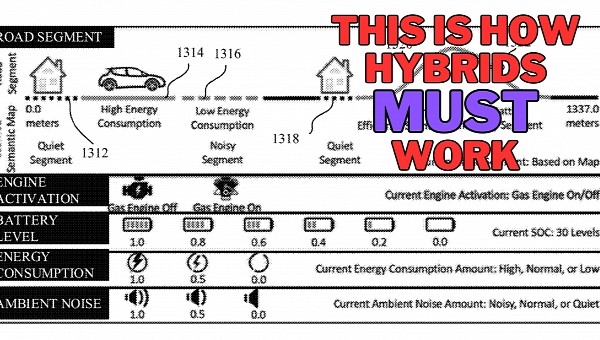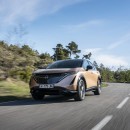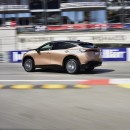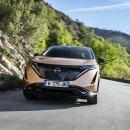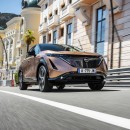Nissan has developed a so-called intelligent engine activation system for hybrids that would allow the gas engine to turn on only when it makes sense.
The carmaker’s idea is detailed in a patent filed in December 2020 and called “route planner optimization for hybrid-electric vehicles.”
Nissan says the system would rely on a planner whose role would be to switch between combustion engines and electric motors when necessary.
Most hybrids today start the gas engine when the battery drops below a certain threshold. As such, the conventional engine joins other systems, such as regenerative braking, in recharging the battery.
Nissan says its intelligent planner would be able to control the switch from gas to electric power more efficiently.
First of all, the carmaker explains that the planner would take into account the route the driver uses. Based on road information, Nissan’s system would be able to predict when the gas engine or the electric motor must be activated for improved efficiency. For example, when approaching a traffic light or a downhill, the planner can read the route in advance and keep the electric motor active. This is because regenerative braking would come into play and therefore address the need for rapid charging of the battery.
When going uphill, the planner could decide to turn on the engine but then switch it off when driving downhill. The energy produced during regeneration would be used for charging the battery more efficiently.
Nissan notes that the planner would also be able to analyze the route to determine if the driver is expected to go on a highway or through residential areas. The company says turning off the engine in residential areas would prevent unnecessary noise from being produced. As such, the planner would try to recharge the battery in advance in order to ensure the required range to go through the entire residential area on electric power. When the residential area comes to an end, the engine can be turned on, as the produced noise would no longer be a problem.
The same approach would also be used on highways. In this case, the gas engine would be favored, as the noise levels can be safely ignored. The electric motor would also be enabled when going downhill or in those sectors where it can produce important fuel savings.
Nissan doesn’t mention a specific navigation solution that would be used for the planning phase. However, Google Maps already includes an eco-friendly routing model in most large markets. The feature optimizes routes specifically to reduce fuel consumption by taking into account additional road information, including traffic patterns and the road incline.
Nissan’s idea is currently in the patent stage, so you’d better not hold your breath to see it on a mass-produced model just yet.
Nissan says the system would rely on a planner whose role would be to switch between combustion engines and electric motors when necessary.
Most hybrids today start the gas engine when the battery drops below a certain threshold. As such, the conventional engine joins other systems, such as regenerative braking, in recharging the battery.
Nissan says its intelligent planner would be able to control the switch from gas to electric power more efficiently.
First of all, the carmaker explains that the planner would take into account the route the driver uses. Based on road information, Nissan’s system would be able to predict when the gas engine or the electric motor must be activated for improved efficiency. For example, when approaching a traffic light or a downhill, the planner can read the route in advance and keep the electric motor active. This is because regenerative braking would come into play and therefore address the need for rapid charging of the battery.
When going uphill, the planner could decide to turn on the engine but then switch it off when driving downhill. The energy produced during regeneration would be used for charging the battery more efficiently.
Nissan notes that the planner would also be able to analyze the route to determine if the driver is expected to go on a highway or through residential areas. The company says turning off the engine in residential areas would prevent unnecessary noise from being produced. As such, the planner would try to recharge the battery in advance in order to ensure the required range to go through the entire residential area on electric power. When the residential area comes to an end, the engine can be turned on, as the produced noise would no longer be a problem.
The same approach would also be used on highways. In this case, the gas engine would be favored, as the noise levels can be safely ignored. The electric motor would also be enabled when going downhill or in those sectors where it can produce important fuel savings.
Nissan doesn’t mention a specific navigation solution that would be used for the planning phase. However, Google Maps already includes an eco-friendly routing model in most large markets. The feature optimizes routes specifically to reduce fuel consumption by taking into account additional road information, including traffic patterns and the road incline.
Nissan’s idea is currently in the patent stage, so you’d better not hold your breath to see it on a mass-produced model just yet.
